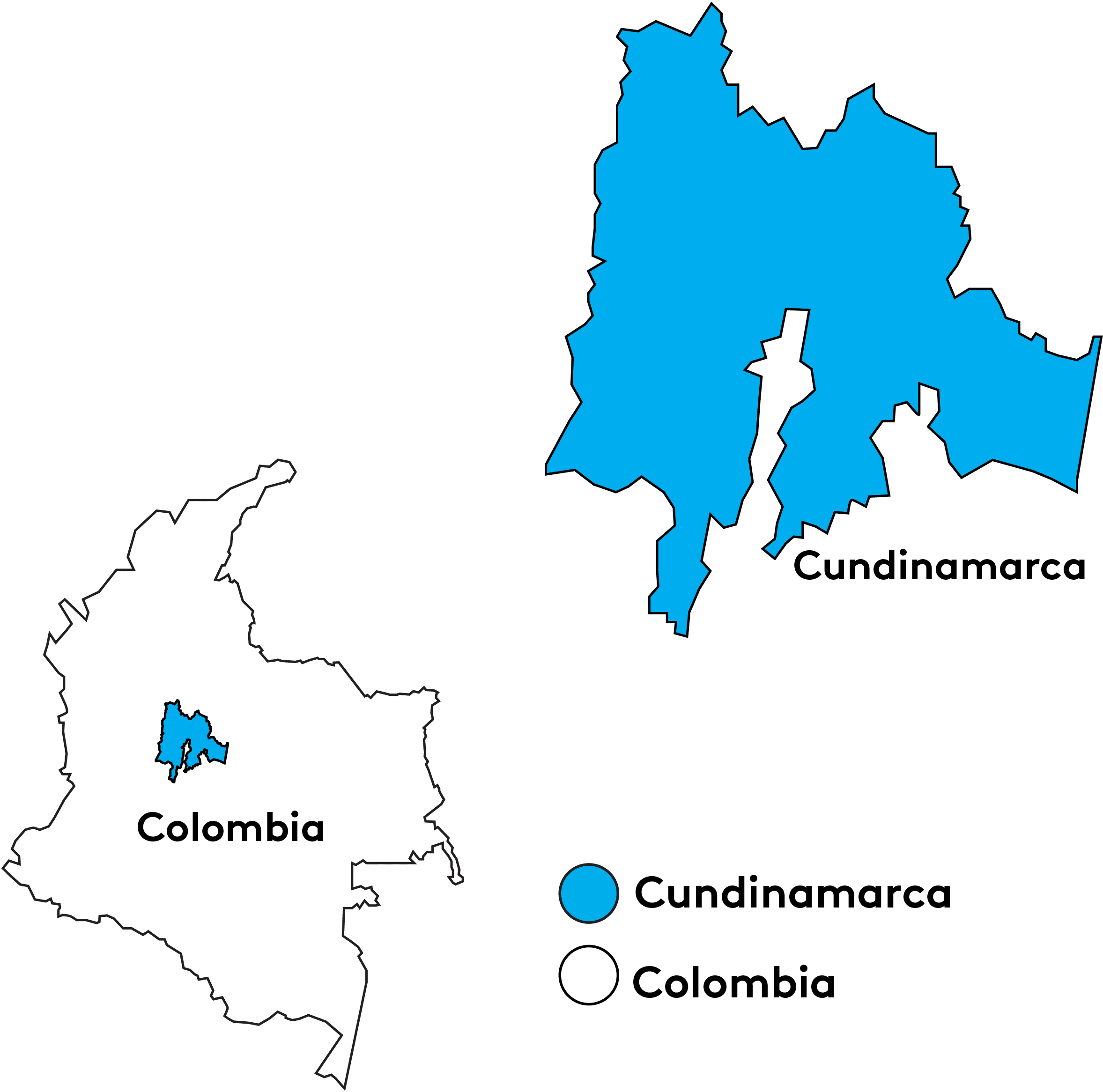Origin
Coffee Specifications
Country
Colombia
Region
Cundinamarca
Producer
Alejandro Montoya
Farm
Villa Gabriela
Variety
Castillo
Process
Lactic
Harvest
Tasting notes
Elevation
1750 meters
Certifications
N/A
Packaging
35kg
Warehouse
SOLD OUT
Colombia
Cundinamarca
Alejandro Montoya
Villa Gabriela
Castillo
Lactic
1750 meters
N/A
35kg
SOLD OUT
Alejandro has been working with coffee for the last twenty years and currently grows coffee on his father’s farm, Villa Gabriela. Nine hectares are planted with 28,000 Castillo coffee trees in Monte Bello in the municipality of Salgar. Coffee is intercropped with banana and plantain trees.
Alejandro has a young daughter whom he hopes will one day grow up to inherit the farm and manage the family land. Coffee has become the primary income for the Montoya family. Villa Gabriela is part of the Neighbors & Crops program at La Palma & El Tucan. La Palma & El Tucan assumes control for all processing stages at their state of the art mill in Zipacon.
Coffee has been integral to the economic development of the Cundiamarca department for more than a century. The area’s coffee is not just a crop; it is part of the social and cultural fabric of the region.
Cundiamarca’s coffee grows on the western slopes of the Eastern Andes range of Colombia. Here, coffee cultivations are notable for their biodiversity, integration into local ecosystems, and the commitment of the department’s coffee producers; these ingredients have contributed to the prevalence of shade coffee in Cundinamarca. Below a layer of native Andean flora, shade-grown coffee demonstrates the regional philosophy of conservation and environmental sustainability.
Cundianmarca’s coffee farms are planted across more than 43,000 hectares, 70% of which are sown beneath other tree species. The department surrounds the country’s capital city of Bogota, with its more than 10 million inhabitants in the city and sprawling metro area. Even though Cundinamarca’s farms are in such proximity to the country’s urban hub, they offer the contrast of aggressively preserving Colombia’s naturally diverse ecosystems.
